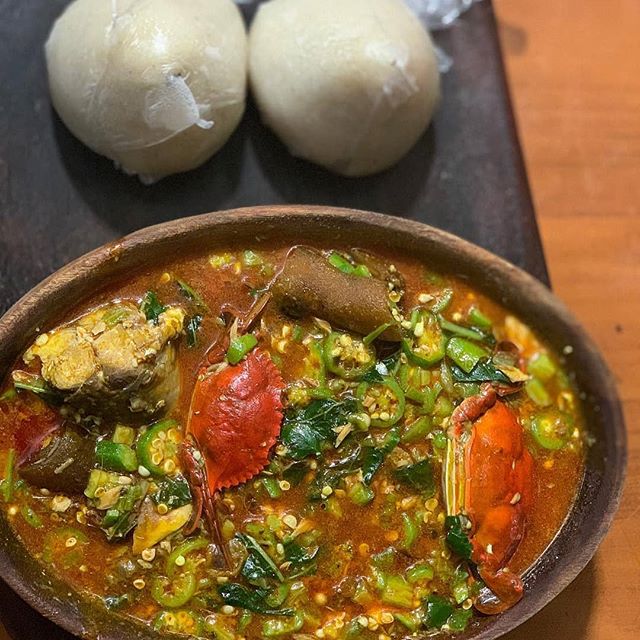
Ewe Cuisine: Fermented Flavors and Culinary Heritage
Ewe cuisine, rooted in the traditions of the Ewe people of Ghana’s Volta Region, is a reflection of the community’s deep connection to the land, rivers, and coastlines. Known for its bold flavors, use of fermented ingredients, and hearty meals, Ewe cooking represents not just nourishment but a cultural identity passed down through generations. At the heart of this cuisine are dishes such as akple, fetri detsi, and a variety of fish stews that embody the Ewe way of life.
The Role of Fermented Flavors
Fermentation plays a central role in Ewe cooking. From corn to fish, the technique is used to create a depth of flavor that is both distinctive and memorable. Fermented corn dough, for example, forms the base of many staple dishes, including akple. This process not only enhances taste but also improves preservation, a practice developed long before refrigeration became common. The resulting tangy, slightly sour taste is now a signature of the cuisine, setting it apart from other regional Ghanaian food traditions.
Akple: The Ewe Staple
Among the most iconic dishes in Ewe cuisine is akple, a soft, slightly elastic dumpling made from corn flour. Served alongside soups and stews, akple is more than just a meal—it is a cultural symbol. Families gather around communal bowls, sharing stories as they dip pieces of akple into spicy, flavorful soups. Its versatility means it pairs well with both vegetarian and meat-based stews, making it a centerpiece of daily and festive meals alike.
Fetri Detsi: A Green Soup of Identity
If akple is the soul of Ewe cuisine, then fetri detsi—a green soup made from okra and assorted leafy vegetables—is its spirit. Cooked with spices, palm oil, and often fresh or smoked fish, fetri detsi is both nourishing and symbolic. The soup’s sticky, earthy texture is enhanced by okra, while the addition of fish connects it to the Volta Region’s rivers and lagoons. It is a dish that represents balance: health, flavor, and cultural pride.
The Centrality of Fish and Stews
Fish is indispensable in Ewe cooking. With the Volta River and the Gulf of Guinea nearby, fresh fish and seafood are readily available, forming the backbone of many stews and soups. Smoked or dried fish is equally important, adding layers of flavor to dishes like light soups and tomato-based stews. Ewe stews are often richly seasoned, combining indigenous spices, chili, onions, and tomatoes to create vibrant meals that stimulate the palate.
Cultural and Social Significance
Ewe cuisine is not only about food but also about community and identity. Meals often bring families together, with food serving as the centerpiece of festivals, rites of passage, and daily life. Dishes like akple and fetri detsi are prepared during traditional celebrations, strengthening cultural bonds and reminding younger generations of their heritage. Sharing food is also a way of honoring guests, a sign of the Ewe people’s renowned hospitality.
Modern Adaptations and Continuity
While urbanization and globalization have influenced eating habits in Ghana, Ewe cuisine continues to thrive. Many urban households still prepare traditional meals, and markets in the Volta Region bustle with ingredients like corn dough, okra, and smoked fish. Younger generations are rediscovering the richness of their food culture, sometimes blending traditional techniques with modern culinary styles. Restaurants across Ghana and beyond are also beginning to showcase Ewe dishes, bringing this distinctive cuisine to wider audiences.
Conclusion
Ewe cuisine, with its reliance on fermented flavors, hearty staples, and rich stews, tells a story of resilience, adaptation, and pride. More than just a collection of recipes, it embodies the values and traditions of the Ewe people. Through dishes like akple, fetri detsi, and fish stews, the Ewe community celebrates its connection to the land and water, ensuring that their culinary heritage remains vibrant for generations to come.
RECOMMENDED ARTICLES
- Ga Cuisine: Kenkey, Shito, and Seafood Flavors
- Homowo Festival: Celebrating Ga Heritage and Ghanaian Harvest Traditions
- Hogbetsotso Festival: Celebrating Ewe Heritage and Ghanaian Culture
- Damba Festival: Celebrating Northern Ghana’s Rich Cultural Heritage
USEFUL LINKS
